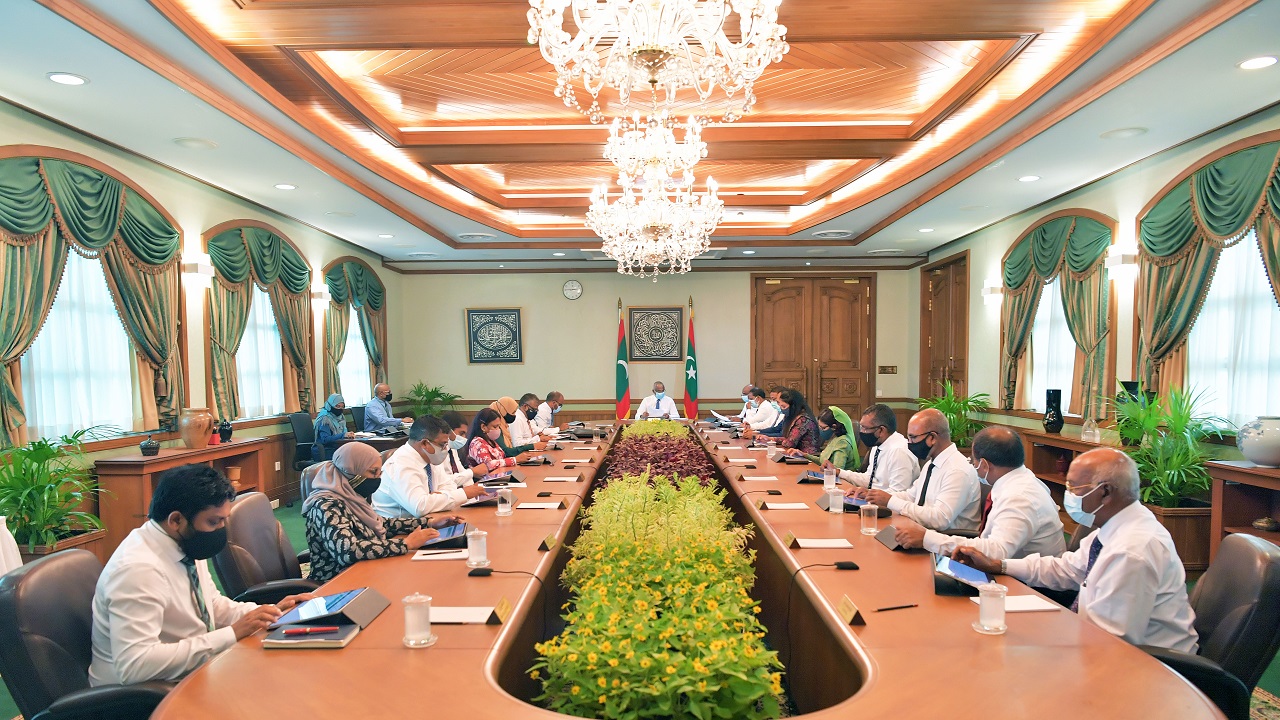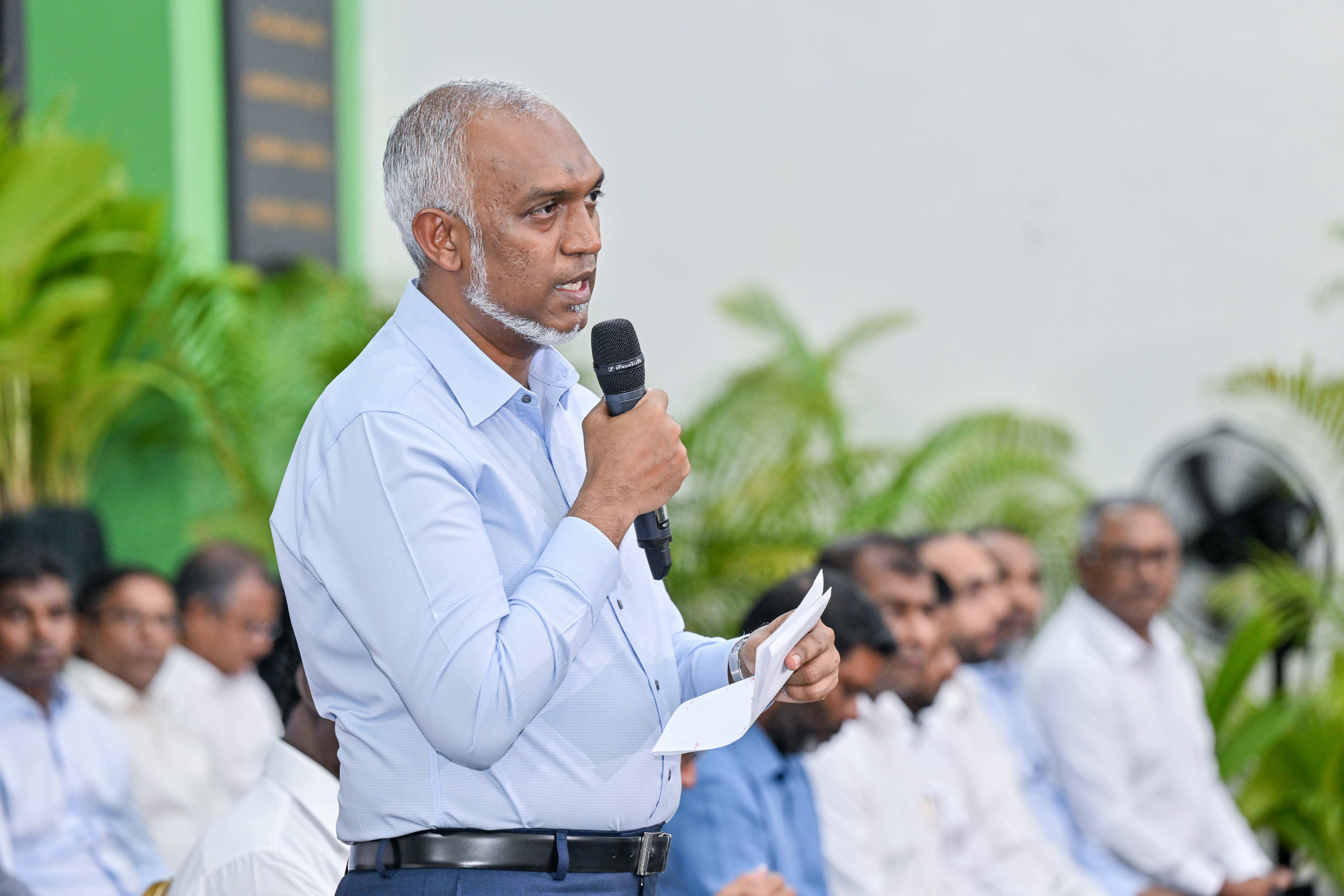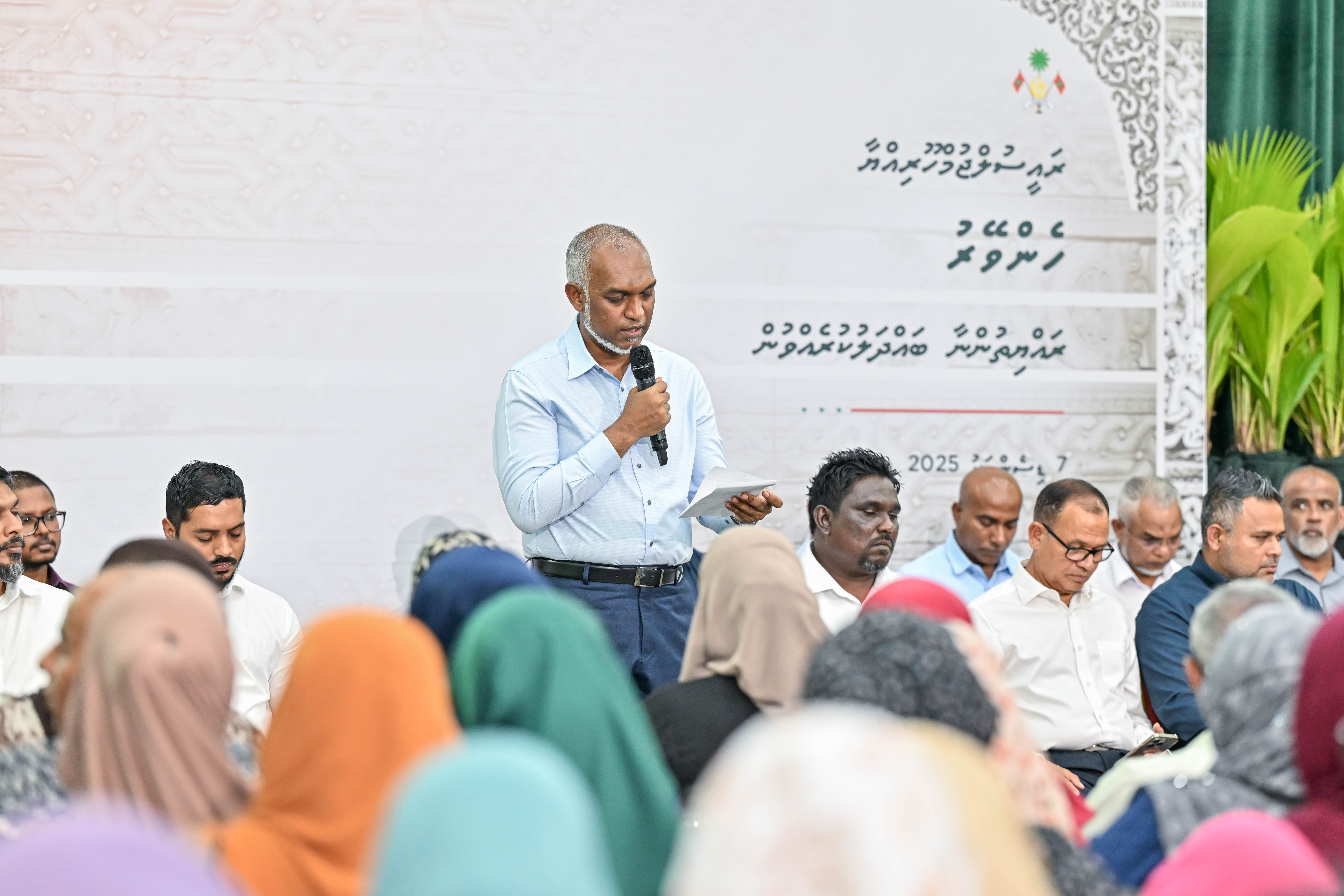On Tuesday, President Ibrahim Mohamed Solih has decided to commission the first phase of the 'Integrated National Public Ferry Network' project to Maldives Transport and Contracting Company Plc. Ltd. (MTCC). The President's decision comes following consultations with his Cabinet.
The Cabinet reached the decision at the session held today, following deliberations on a paper submitted by the Ministry of National Planning, Housing, and Infrastructure.
The ferry network is a large-scale project that introduces efficient, affordable, convenient, and sustainable passenger and cargo ferry services to all administrative islands of the country. In line with the Decentralisation Act, it aims to facilitate inclusive regional development by connecting people and services, accelerate social and economic growth, improve efficiency in the delivery of public services and improve mobility and accessibility for all citizens in all areas of the nation.
The proposed network classifies six central regions and would provide two separate networks for passenger transit and movement of goods and services (cargo ferry) within and in between the regions—linking maritime transport with land and air transport. The ferry network would connect islands within the areas and between areas via three types of links; commute links, non-commute links, and highway links.
In both the National Spatial Plan and the Strategic Action Plan (2019-2023), the Government had previously identified that an integrated national transport service is a national priority. The project would also contribute to achieving several Sustainable Development Goals (SDGs) through its broad socio-economic impact.
The Cabinet reached the decision at the session held today, following deliberations on a paper submitted by the Ministry of National Planning, Housing, and Infrastructure.
The ferry network is a large-scale project that introduces efficient, affordable, convenient, and sustainable passenger and cargo ferry services to all administrative islands of the country. In line with the Decentralisation Act, it aims to facilitate inclusive regional development by connecting people and services, accelerate social and economic growth, improve efficiency in the delivery of public services and improve mobility and accessibility for all citizens in all areas of the nation.
The proposed network classifies six central regions and would provide two separate networks for passenger transit and movement of goods and services (cargo ferry) within and in between the regions—linking maritime transport with land and air transport. The ferry network would connect islands within the areas and between areas via three types of links; commute links, non-commute links, and highway links.
In both the National Spatial Plan and the Strategic Action Plan (2019-2023), the Government had previously identified that an integrated national transport service is a national priority. The project would also contribute to achieving several Sustainable Development Goals (SDGs) through its broad socio-economic impact.


















